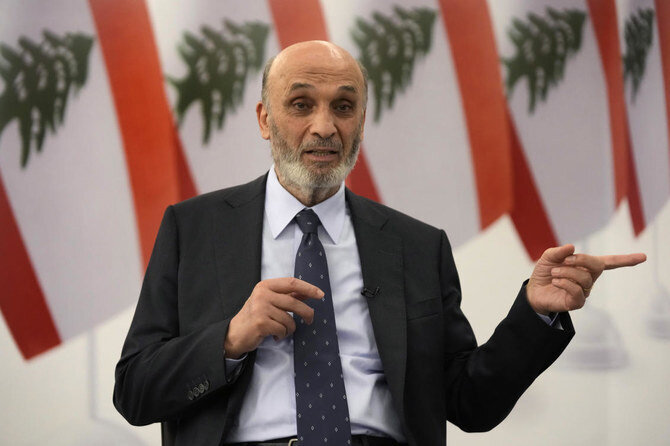Geagea’s relentless effort to wrest parliamentary seats from the Shiite duo

BEIRUT — The Lebanese Forces and its leader, Samir Geagea, are preoccupied with monitoring the potential repercussions of the success or failure of the negotiations between Washington and Tehran, fearing that any positive outcome will hinder an “achievement” against the resistance movement. This is reflected in the organized campaigns waged by the Lebanese Forces against President Joseph Aoun.
Samir Geagea believes that the success of the agreement will benefit Iran's regional allies, specifically Hezbollah. Above all, they fear an unprecedented activity by Hezbollah to rebuild its structure and capabilities, which they believed had been destroyed by the recent US-led Israeli aggression.
Indeed, the Lebanese Forces party suffers from its tense relationship with local political factions, which are closely awaiting the results of the new round of negotiations between Washington and Tehran, and are also dismayed by the Lebanese Forces’ rhetoric, which suggests Lebanon is returning to the era of civil war.
The Lebanese Forces Party views the American-Israeli project in West Asia as fully consistent with its unsovereign vision, which advocates dividing the undivided, i.e., promoting a neo-Sykes-Picot project, and seeking revenge, retroactively, for the resistance’s thwarting of its pro-Israel project in the early 1980s.
Geagea’s role, obviously, is to fuel sectarian strife in Lebanon not only by openly calling for the disarmament of the resistance movement, but also by isolating the Shiites in Lebanon.
Therefore, the upcoming parliamentary elections (scheduled for May 2026) represent an opportunity for the Lebanese Forces to forge alliances that would probably lead to the seizure of at least one of the 27 Shiite parliamentary seats, in a bid to ensure the parliamentary speakership taken from the Shiite duo—that is, from the pro-resistance team.
Informed sources reveal that Riyadh is supporting the next government by supporting Geagea's candidate, MP Fouad Makhzoumi, after Nawaf al-Salam failed due to his lack of diplomatic experience.
From now until the parliamentary elections, Geagea will be busy obstructing any efforts to rebuild what was destroyed by the September-November U.S.-led Israeli aggression of Lebanon, especially Hezbollah's service institutions, by preventing the government from paying any compensation or even providing any kind of facilitation in this regard.
Lebanese Forces recently dropped a draft law aimed at rebuilding homes destroyed by the occupation regime, as well as a law aimed at exempting cities, municipalities, and villages in the Nabatieh and South governorates from water and electricity fees and fines.
So far, it does not appear that the so-called international community will provide reconstruction aid if the Lebanese government does not comply with the conditions of the U.S.-Saudi tutelage states.
Meanwhile, various experts have confirmed that Lebanon’s Ministry of Finance holds significant sums in the Central Bank of Lebanon that could contribute to compensating those affected by the Israeli aggression.
Besides, the government is evading its responsibility to form a national reconstruction body and is not undertaking any local initiatives or engaging with wealthy Lebanese, both inside and outside Lebanon, to provide even partial funding for a fund overseen by the body itself.
This coincides with the obstruction of foreign aid from Iran and Iraq.
Leave a Comment